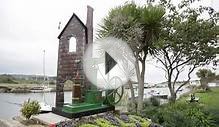
Cornwall gets the largest fleet of under 10 metre vessels in the UK. These mainly work within 12 miles of land and they are polyvalent within their activities, often switching between gear types in the same day like going between potting, netting and handlining.
Multi purpose inshore fishing vessel Pride of Cornwall, Photo by Laurence Hartwell ©
Until 1962 fisheries management in UK Territoral Waters cas carried out because of the UNITED KINGDOM federal government. However when Britain joined up with the EU, handling of fisheries became a more political event. Many of the stocks that individuals catch are shared and migratory, consequently they are also caught by EU vessels so a multinational way of fisheries management is smart. Many countries have historical files of fishing within oceans and also the current system recognises these legal rights. The Common Fisheries Policy (CFP) sets quotas in the quantities of all primary fish species landed. This limit has some undeniable fisheries preservation benefits. The problems come whenever vessels come to an end of quota and after that forced to discard fish for which they haven't any quota. In Cornwall’s extremely productive seas it is impossible for anglers to prevent catching specific types. Modern reform for the Common Fisheries plan is defined to ban discards. This discard ban will be very difficult for Cornish demersal fisheries specifically, and precisely how the ban could be earned is a significant issue for Cornish fishermen.
Share this article
More about Port Isaac (Cornwall)



